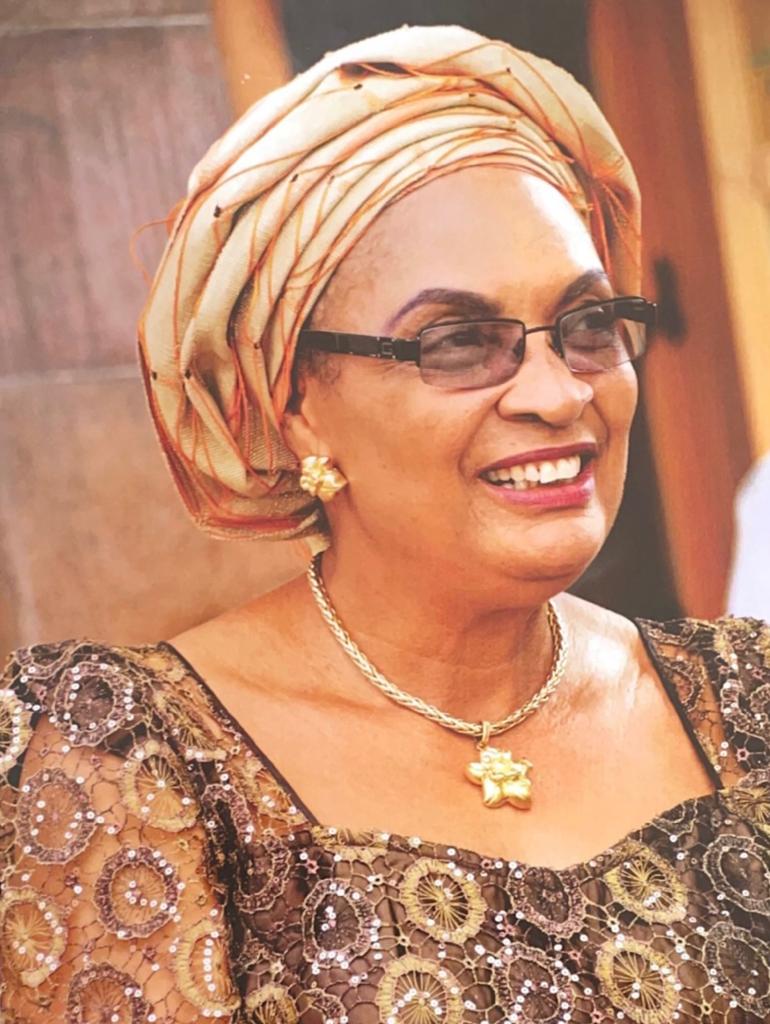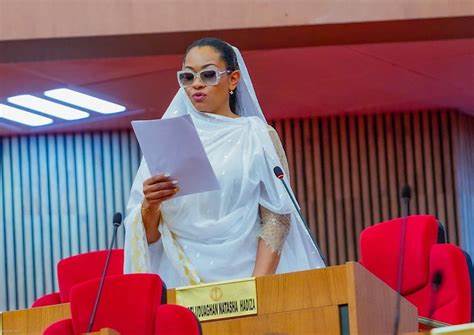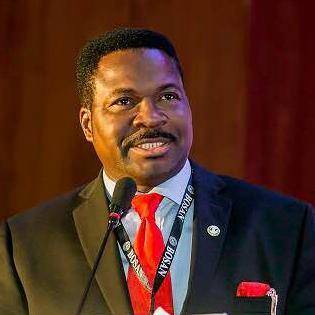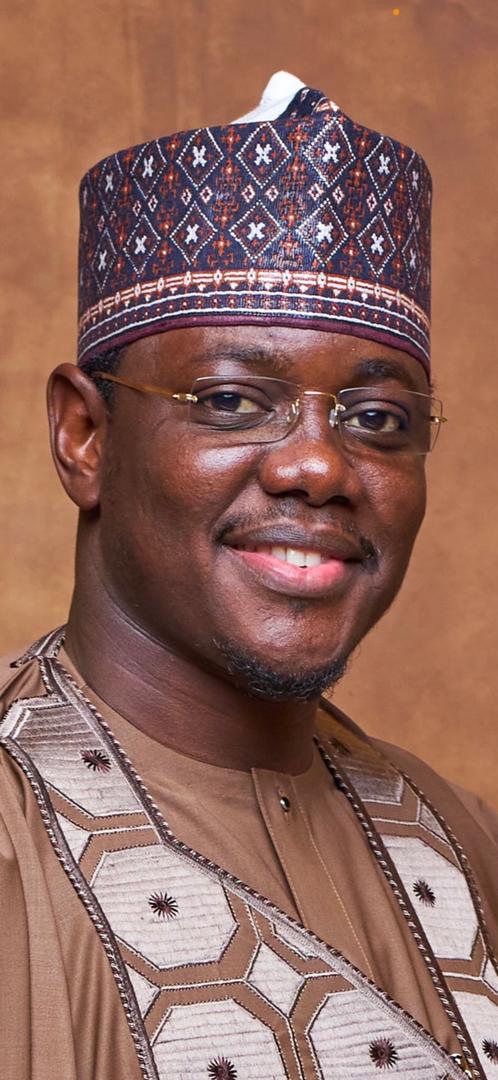By Tunde Olusunle
Evening Wednesday March 22, 2023, the Abuja home of Onyema Ugochukwu, the iconic economist, journalist, administrator, publicist and statesman hosted the landmark birthday celebration of the mother of the family and Ugochukwu’s wife, Joyce.
Events commemorating the milestone began in the earlier hours of the evening with a thanksgiving service at the Methodist Cathedral of Unity, Wuse, Abuja, where the Ugochukwu family has regularly worshipped for the better part of the past three decades. If the programme at the cathedral was presumably capacity-stretched in honour of a woman who has done so very well for the Church of God, more was coming thereafter. The Americans will tell you “you ain’t seen nothing yet!”


Back home on the well manicured lawns of the Ugochukwu family abode, friends, associates, admirers and members of the Ugochukwu extended family, congregated in streaming numbers. They came to honour the amiable, archetypal woman of the purest virtues, of depth and substance, of startling inner strength and of unmatchable multitasking capabilities. They did so as she joined the treasured league of septuagenarians. Yes, rolled into this unassuming epitome of grit and goodness, is a wife, mother, grandmother, sister, auntie, mentor, counsellor, and more. Her husband’s patented style of addressing her, confers an additional e to her first name, representing it as Joycee.
Ever recurring and recognisable names in the nation’s sociopolitics who graced the occasion, included: Ahmadu Ali, GCON, former chairman of the Peoples’ Democratic Party, (PDP) and his wife, Marian; Enyinnaya Abaribe, former minority leader of the Senate and ABC Nwosu, Emeritus professor and former Health minister. Austin Akobundu, immediate past national organising secretary of the PDP; Ochi Achinivu retired permanent secretary and former special adviser to the president and his wife, Chinyere who is younger sister to Onyema Ugochukwu, as well as the director-general of the national council for arts and culture, Segun Runsewe, OON, and his wife, Wumi, honoured the event.
Johnny Chukwu, former permanent secretary of the ministry of federal capital territory, (MFCT) and Uba Agadaga, a former member of the national assembly service commission, (NASC), were present. Tivlumun Nyitse, chief of staff to the governor of Benue State, added colour to the programme, as did Eboh Ihekwereme Okorie, two-time commissioner in Abia and his wife, Lizzy. Benson Ezem, Chairman, Cosmo Base Consortium graced the event with his family, in the same way as Julius Rone, an Onyema Ugochukwu protege, and Chairman, UTM Oil and Gas Ltd. For a social event hosted at the heart of a new week, this was very impressive.
The extended Ugochukwu clan came from as many destinations as imaginable. Matriarch of the family, Eleonu Ugochukwu, 84, widow of Onyema Ugochukwu’s elder brother, Ndubuisi; and Ngozi Ugochukwu, wife of Ugochukwu’s younger brother, Ude (of blessed memory), were in attendance. Anosike and Ndubueze Ugochukwu, accompanied their mother to the function. Oluchi Nwosu, cousin to Onyema Ugochukwu; Obi Ugochukwu, nephew of chief host Ugochukwu, and his family, as well as Chukwuemeka Ugochukwu, (we call him “General”), son of Onyema and Joyce Ugochukwu, attended the event with his family. Chuks (as we abbreviate his name) simultaneously represented his siblings who are mostly in diaspora, even as information technology facilitated real-time joiners from across the world. Chidozie Ugochukwu and his sister Uzor, both children of the Ugochukwus, as well as Okechukwu Iroamachi, Onyema Ugochukwu’s nephew, all joined via zoom from the United States.
The “Grant” family of Warri, birthplace of the celebrant, was represented by Olude, Bernie and Tumi Grant, brother and nephews of Mrs Ugochukwu. Such is the strikingly rich pan-Nigerian sociocultural interconnectedness of the Ugochukwu family. Attendance at the event was as diverse, colourful, sombre and dignifying. The event planner did a good job of the decoration of the event arena, even as good music from a one-man band and a savvy deejay, competent catering and a rich and responsive bar, answered to the desires of attendees. Glowing tributes and expletives flowed from speaker after speaker. It was a most fitting testimonial to the life and endeavours of a lady who has impacted many in her journey through life.
Veteran medic and entrepreneur, volunteer public servant, activist in the vineyard of God, exceptional wife, ever doting mother, unblinking grandmother, Joyce Ugochukwu was born March 22, 1953, to the “Egbejule” family of Warri in the primordial Western Region. Warri has severally fallen under the jurisdictions of the Midwestern; Bendel, and (post-1999), Delta states. Between 1967 and 1971, she attended the Anglican Girls Grammar School, Benin City, where she wrote the West African School Certificate Examination, (WASCE), ordinary level. She proceeded to Edo College, also in Benin City, from 1972 to 1974 for her Higher School Certificate Examination, (HSC), advanced level. She thereafter attended the medical school of the University of Lagos, where she earned the MBBS in 1979. She would subsequently be wedded to her husband, Onyema, on September 8 of the same year.
She served as an intern at the Lagos University Teaching Hospital, (LUTH), from 1979 to 1980, and underwent the mandatory one year National Youth Service Corps, (NYSC), at the Federal Housing Authority, (FHA) Clinic, Lagos, between 1980 and 1981. Between 1981 and 1983, she was a medical officer at the Nigerian Ports Authority, (NPA), Lagos, and thereafter studied at the Royal College of Hygiene and Public Health, where she obtained a diploma in public health in 1987. She joined the services of the Holy Trinity Hospital, Ikeja, where she worked from 1987 to 1990. With the bouquet of experiences she garnered in her years of service in various medical concerns, she established the Hugo Medical Centre in Lagos in 1990, and remains the Chief Medical Director.
Dr Ugochukwu was one of the earliest physicians earnestly sought by the National Programme on Immunisation, (NPI), in 1999. She served as coordinator of the programme in Abia, Benue, Imo, Kano and Nasarawa states. She remained on this brief until 2001, while also offering medical consultancy to the World Health Organisation, (WHO). Her maternal, humanist instincts culminated in the establishment of the Eje Foundation so christened in memory of her mother-in-law. The foundation which became operational in 2003, was conceived to cater for the needs of the underprivileged in our rural countryside. The foundation has served thousands of people in Abia, Bayelsa, Rivers and Lagos states, with specific focus on the poor, motherless and widowed.
Mrs Ugochukwu’s passion and commitment to her profession and authentic humanitarianism caught the eyes of former First Lady, Stella Obasanjo, (of blessed memory). She was appointed “Home Committee Member of the Child Care Trust,” a non-governmental organisation, (NGO), established by the erstwhile First Lady. The specific references of the Trust is to cater for the hearing-impaired, physically challenged and mentally incapacitated, under the age of 15. She remains one of the flagbearers of the initiative, years after the unfortunate exit of the visioner. Since 2001, Dr (Mrs) Ugochukwu has been a diligent member of the Methodist Cathedral of Unity, Abuja. She has trained as an evangelist of the church, graduating in 2010. She is matron to: “Trinity Band Society,” “Christ Ambassador Society” and the “Cathedral Circuit Youth Fellowship” of the church, and was decorated with the “Susan Wesley Award” in 2011, for meritorious service to God and humanity. She is presently, “Church Steward” and “Vice President of the Women’s Fellowship” in the Abuja Methodist Cathedral. She is very active in church activities which entails occasional travels to various states and locations.
Her husband’s professional endeavours, has necessitated quite some mobility for the family. At various times, the family has resided in Lagos, London, Abuja and for a bit part in Port Harcourt, among others. Those of us who have come some distance with Onyema Ugochukwu beginning from our Daily Times years in Lagos, have been serially treated to her warmth and hospitality. During Chief Ugochukwu’s more politically active times especially in his quest for the governorship of Abia State which kept him back home in Abia for weeks and months, Mrs Ugochukwu was ever so adaptable and supportive of the entire Ugochukwu political family.
The Ugochukwu project which was named the Campaign for Abia Rebirth, (CARE), ran a very systematised, robust, issue-based electioneering which was enthusiastically received by the generality of the people of the south eastern state. Electoral irregularities which unfortunately have become beatified by individuals and institutions in our pseudo-democracy, robbed Ugochukwu of his gubernatorial mandate in 2007. Through the attendant gloom in our political family, the Ugochukwu camp, through the Election Petitions Tribunal and onwards to the Court of Appeal, Mrs Ugochukwu remained rock solid support for her spouse. Her strength of character and positivism, indeed infected the rest of us.
Mrs Ugochukwu is a unique breed of technocrat. Her elitism is not about unsettling you. No. She is your disarming host, a very earthy, African woman, not of the Fela Anikulapo-Kuti construction in his everglades hit tune, Lady, though. Mrs Ugochukwu engages you with regular detours into pidgin English of the archetypal Warri flavouring, to make you feel at home. Her professional and maternal instincts, engender notable psychoanalytic capabilites. When she’s dealing with people therefore, she’s in strong position to distil their thoughts, and to offer pointed counsel and guidance. The union between Onyema Ugochukwu, Fellow of the Nigerian Guild of Editors, (FNGE) and Commander of the Order of the Niger, (CON), and Dr Joyce Ugochukwu is blessed with four children and many grandchildren. Like her husband, Dr Joyce Ugochukwu is very well travelled across the globe.
Tunde Olusunle, PhD, poet, journalist, scholar and author, is a Member of the Nigerian Guild of Editors, (NGE)




